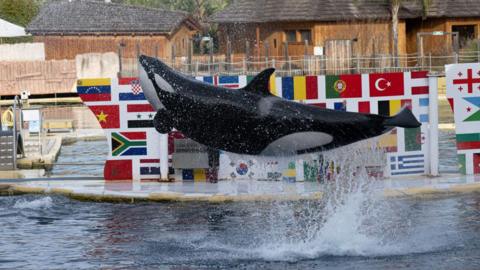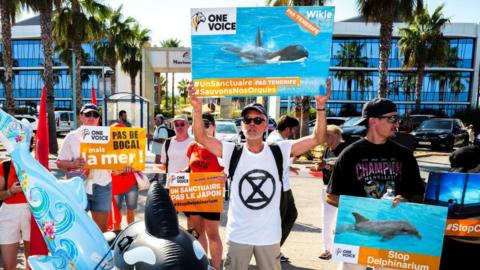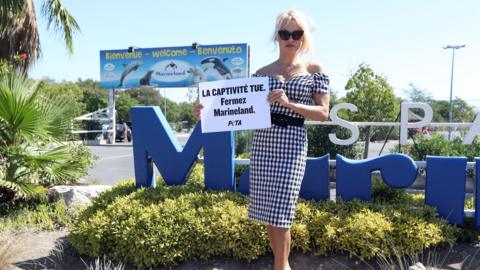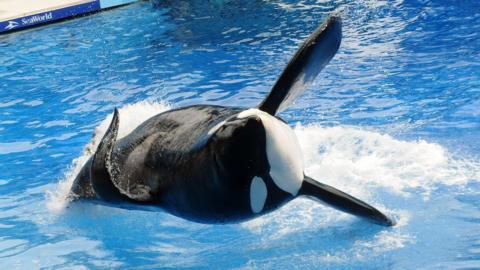The fate of two killer whales is uncertain following the closure of a marine zoo in France on Sunday.
Campaigners and the zoo's managers have been locked in disagreement about what should happen to the orca whales with the French government already blocking one proposal to rehome them.
Last month Marineland Antibes, located near Cannes in the French Riviera, said it would permanently shut on 5 January following new animal welfare laws.
The legislation, which bans the use of dolphins and whales in marine zoo shows, was passed in 2021 but comes into effect next year.
Marineland, which describes itself as the largest of its kind in Europe, currently keeps two killer whales - Wikie, 23, and her 11-year-old son Keijo.



